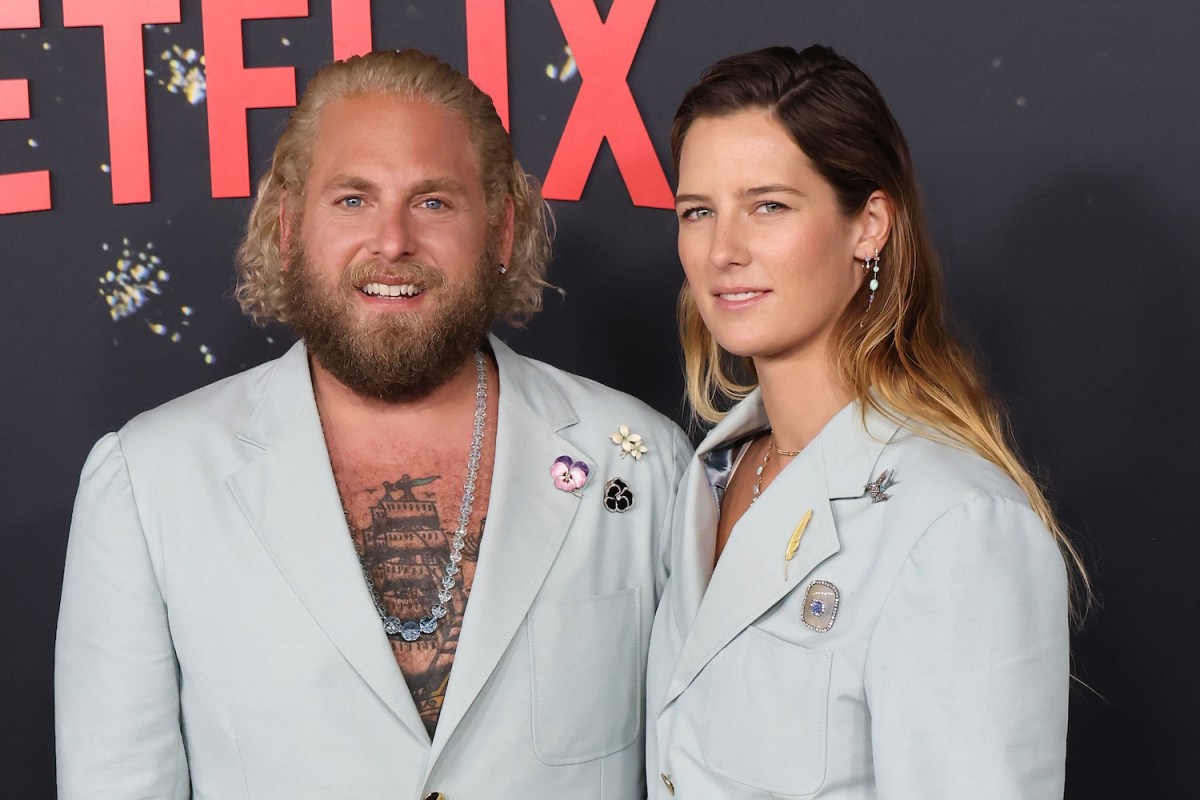In the twist of the century, being in therapy is now considered a badge of honor among many young people seeking relationships. Some guys have started including their therapy credentials in their dating app profiles and speaking proudly about their weekly sessions on dates with prospective partners. As Americans shrug off the shame and stigma that’s long shrouded mental healthcare, the rise in male clients marks a promising shift. But as the internet saw over the weekend with the fervor around Jonah Hill’s alleged text messages to his ex-girlfriend, professional surfer and model Sarah Brady, it’s all too easy for those in power to twist the lessons of therapy into a self-serving agenda, undoing the real benefits unlocked by good counseling.
Hill, who released a popular Netflix documentary in November about his own therapy journey, dated Brady for about a year before they broke up in 2022 and has since moved on to other partners. But this past weekend, Brady shared a spate of screenshots that appeared to be pulled from conversations between herself and Hill from last year, illustrating why she felt he’d been “emotionally abusive” towards her when they were together. The photos appeared to show Hill listing criticisms and demands about Brady’s behavior — dictating what jobs she could have, what friends she could associate with and what clothing she could wear if she wanted to stay with him. These, he allegedly said, were his “boundaries,” and if she couldn’t abide by them, they couldn’t be together.
One of the longer texts admonished Brady for “surfing with” and having “boundaryless inappropriate friendships with men,” as well as modeling and posting pictures of herself in a bathing suit, which he deemed “sexual,” despite them being a significant part of her career. He also criticized her for having “friendships with women who are in unstable places and from your wild recent past beyond getting lunch or coffee or something respectful.” If these were things that Brady felt she needed, he said, “I am not the right partner for you. If these things bring you to a place of happiness, I support it and there are no hard feelings. These are my boundaries for romantic partnership. My boundaries with you are based on the ways these actions have hurt our trust.”
In other texts, Hill allegedly disapproved of Brady posting pictures of her “ass in a thong” and working as a model altogether, something he said was “the last professional I would be with as a partner.” She replied: “Well maybe you should’ve asked me more about what I do for work before you decided to date me then. A little late now.” To which Hill responded: “Keep taking me for granted,” adding sarcastically, “Go model! It’s a fulfilling life, you’ll love it. Real depth and substance and sustainability for relationships. But actually I’m done with this convo.”
Here’s How to Not Be a Manchild in Your Relationship
Grown-ass men to the frontIn the days since the screenshots were disseminated, Hill has been berated online for what people perceive as him co-opting the language of therapy to exercise his own control. A boundary, as TikTok-famous therapist Jeff Guenther explained in a reaction video, is a “healthy limit a person sets for themselves to protect their well-being and integrity. It is a rule or guideline that one creates to identify reasonable, safe and permissible ways for others to behave towards them and how they’ll respond when someone passes those limits.”
Though he borrowed the terminology, nowhere in Hill’s alleged texts was he actually setting a boundary. Instead, he was establishing an ultimatum based not on protecting his own emotional wellbeing but limiting his partner’s autonomy, which relationship experts characterize as a red flag of emotional abuse.
The takeaways from the Hill-Brady screenshot fiasco are many. Simply showing up to sessions and absorbing affirmations and therapy-speak does not constitute a mastery of the self. Besides, mastery isn’t really the goal, anyway. Therapy isn’t a quick fix to ailing mental and emotional health — it’s often a lifelong practice that requires commitment and introspection. We miss the point of therapy altogether when we repackage its surface level lessons to try to conquer the things in our lives that make us uncomfortable. Instead, therapy is just another tool to help us uncover the strength and confidence we need to embrace the discomforts and uncertainties of life, not squander them.
For Hill, like the rest of us, it seems there’s plenty more work to be done.
The Charge will help you move better, think clearer and stay in the game longer. Subscribe to our wellness newsletter today.



















